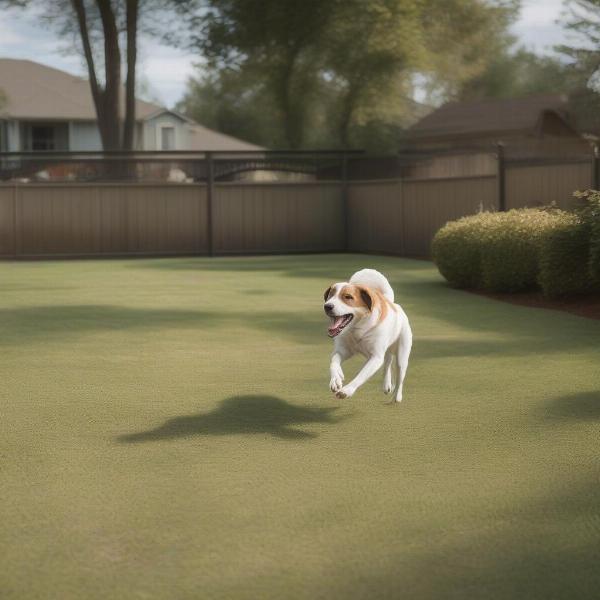Dog scars are a common occurrence, resulting from anything from playful scrambles to more serious injuries. Understanding the types of scars, how they form, and proper care is essential for every dog owner. Whether your furry friend has a fresh wound or an old scar, this article will equip you with the knowledge to ensure optimal healing and minimize long-term effects.
Different Types of Dog Scars
Just like humans, dogs can develop various types of scars. These include hypertrophic scars, which are raised and red, often resulting from excessive collagen production. Keloid scars are similar but tend to grow larger than the original wound. Contracture scars can restrict movement, especially if they form over a joint. Finally, atrophic scars appear as sunken or indented areas due to tissue loss.
How Dog Scars Form: The Healing Process
When a dog’s skin is injured, the body initiates a complex healing process. Initially, blood clots to stop bleeding and platelets release growth factors to stimulate cell regeneration. Collagen, a protein, is then produced to rebuild the damaged tissue. This process can lead to scar formation, especially with deeper wounds.
Caring for a Fresh Wound to Minimize Scarring
Proper wound care is crucial for preventing infection and minimizing scarring. Keep the wound clean by gently washing it with mild soap and water. Apply a veterinarian-approved antiseptic and cover the wound with a bandage to protect it from further injury and contamination. Regularly change the bandage and monitor the wound for any signs of infection, such as redness, swelling, or discharge.
Treatment Options for Existing Dog Scars
Several treatment options are available to manage existing dog scars. Topical treatments, like silicone sheets or gels, can help flatten and soften raised scars. Steroid injections can reduce inflammation and shrink hypertrophic or keloid scars. Laser therapy can improve scar tissue texture and reduce redness. Surgical removal is an option for large or problematic scars. Consult your veterinarian to determine the best treatment for your dog’s specific scar type and location.
Preventing Dog Scars: Proactive Measures
While not all scars are preventable, proactive measures can reduce the risk. Keep your dog’s nails trimmed to prevent scratches. Address skin allergies promptly to avoid excessive itching and scratching. Provide a safe and stimulating environment to minimize the risk of injuries.
 A dog playing in a safe, fenced-in yard
A dog playing in a safe, fenced-in yard
When to Consult a Veterinarian
If you notice any unusual changes in your dog’s scar, such as increased size, redness, or discharge, consult your veterinarian immediately. Also, seek veterinary attention for any deep or infected wounds. Early intervention can help prevent complications and optimize healing.
FAQ
- How long does it take for a dog scar to heal? Healing time varies depending on the wound’s depth and size, but it generally takes several weeks to months.
- Can dog scars be completely removed? While some treatments can significantly improve scar appearance, complete removal is not always possible.
- Are certain dog breeds more prone to scarring? Breeds with thin or sensitive skin may be more susceptible to scarring.
- Can I use human scar treatment products on my dog? Always consult your veterinarian before using any human medications or products on your dog.
- What can I do if my dog keeps licking its scar? Use an Elizabethan collar to prevent licking, which can interfere with healing.
- Are there any home remedies for dog scars? While some natural remedies may offer some relief, always consult your veterinarian before trying them.
- Can diet affect scar healing in dogs? A balanced diet rich in protein and essential nutrients is crucial for optimal healing.
Related Articles on ILM Dog
ILM Dog is your trusted resource for expert advice on dog care and wellbeing. We offer comprehensive information on breed selection, health and medical care, training, nutrition, grooming, and much more. Whether you’re a new dog owner or a seasoned enthusiast, ILM Dog is here to support you every step of the way. For personalized advice or further information, contact us at [email protected] or +44 20-3965-8624. Visit us at ILM Dog for more valuable insights and resources to help you provide the best possible care for your beloved companion.